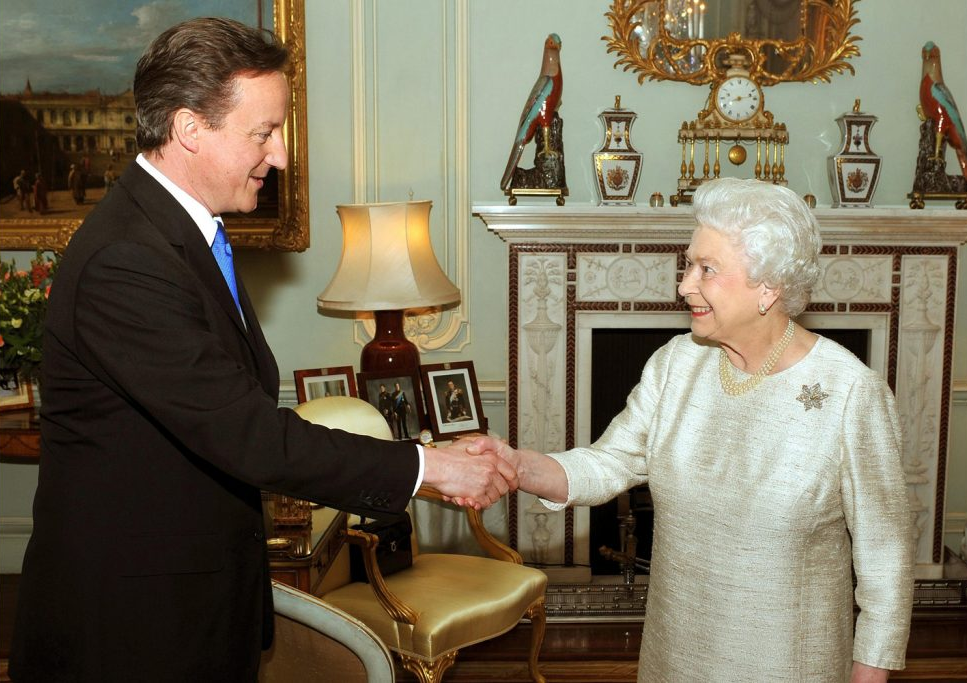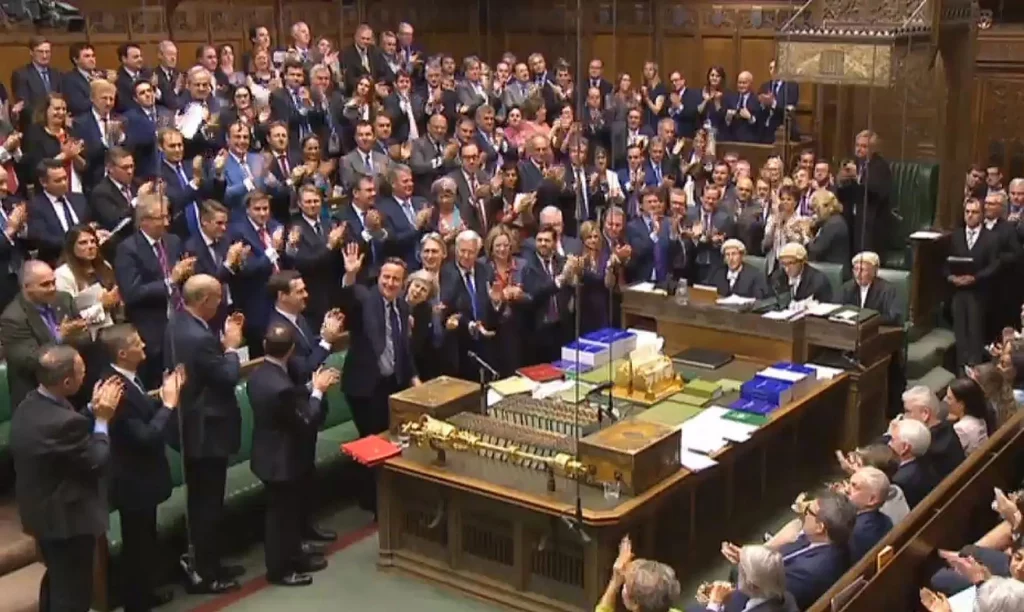By Claudia Bradley
David Cameron served the United Kingdom as Prime Minister from 2010 to 2016. He was leader of the Conservative Party from 2005 to 2016.
Some argue he was the most popular Prime Minister since Margaret Thatcher, who served for 11 years until 1990 in the third-longest term in UK history. Under David Cameron’s leadership, the UK legalised same sex marriage in 2015. He also ensured the UK committed to the NATO 2% defence spending target, also meeting the UN target of 0.7% aid and development spending.
Cameron resigned as PM in 2016 after the Brexit referendum concluded the United Kingdom would leave the European Union. Cameron was in favour of the UK remaining, and resigned so as not to be a “distraction” for the prime minister who succeeded him, Theresa May.
Cameron said at the time he was “very proud and very honoured to have been prime minister of this country for six years.”

David Cameron with Queen Elizabeth II.
Today (13th November) David Cameron has accepted Sunak’s invitation of life peerage in the House of Lords, which allows him to rejoin the government in a “bombshell political comeback”.
Life peers are usually appointed for the duration of their lifetime, although they can choose to retire. There are currently 785 peers in the House of Lords, and their role is primarily with law-making and governance.
New laws cannot be passed without first being approved by the House of Lords and the House of Commons, where MPs sit. Together, these houses make up Parliament.
New laws must then achieve Royal Assent from the monarch of the United Kingdom before coming into effect. This complicated structure is designed to ensure a balance of power.
Cameron’s role in the House of Lords has MPs worried they will not be able to directly question him to hold him to account in the House of Commons, which is a fundamental part of UK politics. However, MPs will be able to ask written questions, and Cameron will appear before select committees of MPs. Cameron is also not the first member of the House of Lords to hold a ministerial post.

David Cameron being applauded in the House of Commons, Parliament.
The news comes as PM Rishi Sunak has been reshuffling his cabinet. Earlier, he sacked Suella Braverman from her role as home secretary following days of speculation about her future in government, after she controversially accused the Metropolitan Police of bias when policing pro-Palestinian protests. If you want a more in-depth analysis of the former Home Secretary, go and check out George’s piece on Braverman.
In appointing Cameron to one of the top four offices of government, Sunak seems to disregard Cameron’s close association with one of the UK’s biggest financial scandals in recent years. Two years ago, BBC Panorama revealed internal documents suggesting Cameron made over £8.2 million when promoting a controversial finance business, Greensill Capital, which was named as a suspect of fraud in 2021 when billions of dollars of investors’ money went missing. Greensill denied these allegations.
There are some who already disliked Cameron during his days of being PM, most commonly due to intervening with Libya alongside NATO in 2011, after which he did not plan to help reconstruct the country, and an “austerity programme” after the Great Recession, which saw deep cuts to public services and welfare spending.
Many believe Rishi Sunak calling back the ex-PM is an attempt from the Conservative Party to save their government from being voted out at the next general election, which is scheduled to happen no later than January 2025. However, if this is the case, Cameron’s life peerage in the House of Lords means he would continue to serve the United Kingdom.